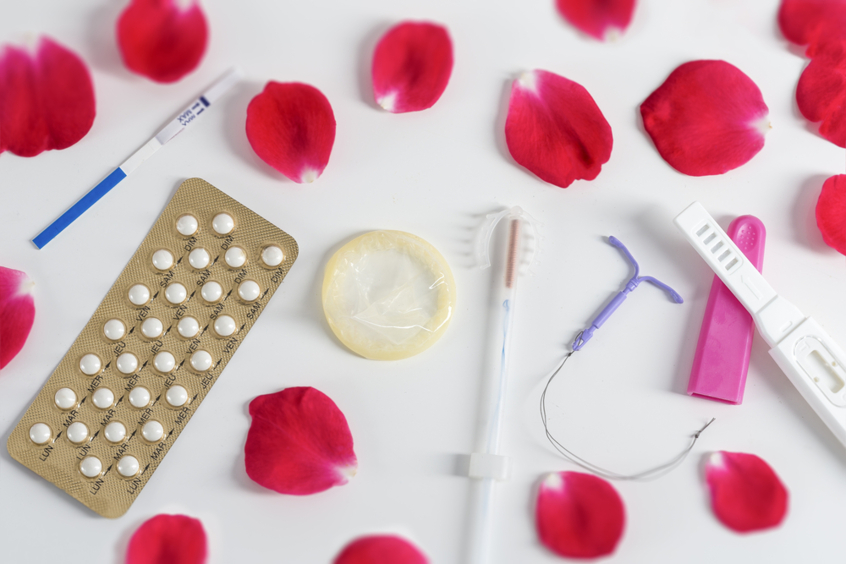Breakthrough Bleeding Continue With Active or Switch to Placebo
Can you get your period on the pill?
If you bleed when you are on the pill, you are not experiencing your monthly period. This is either withdrawal bleeding during the week you aren't using birth control or breakthrough bleeding, which occurs while taking the pill.
What is withdrawal bleeding?
Withdrawal bleeding is common among those who use combined oral contraceptives (COCs). It occurs when you take a scheduled break, stop taking pills at all, or take placebo pills for seven days. This type of bleeding is easiest to control. It's called withdrawal bleeding because it is induced by the withdrawal of certain hormones during the break.
What is breakthrough bleeding?
Breakthrough bleeding is bleeding that occurs between normal menstrual periods, between periods of withdrawal bleeding, or during pregnancy. Breakthrough bleeding on contraceptives is quite normal. It is a type of vaginal bleeding that is sometimes confused with menstruation.
As the name indicates, this bleeding occurs while you're taking the pill. It happens when the inner lining of the uterus does not get enough hormones to remain stable and starts bleeding. This signals that the inner lining has to adapt to the hormones.
It can also occur in the first few months after you start taking birth control pills. You may also notice some light bleeding if you skip or miss a dose.
What does breakthrough bleeding look like?
Breakthrough bleeding refers to bleeding that takes place at an unexpected time during your menstrual cycle. It is usually either light red or dark reddish-brown, like the blood at the beginning or end of a period. But it may also resemble regular menstrual blood, depending on the cause. This type of bleeding may be sufficient to require the use of a tampon or sanitary napkin.
What are the reasons for bleeding on birth control?
Various factors can cause breakthrough bleeding when you're on birth control.
Oral hormonal contraception
Hormonal contraception is a common cause of breakthrough bleeding, which happens because your body adjusts to different hormone levels. What's more, it can occur if you've switched to a different birth control method.
You may experience breakthrough bleeding on oral hormonal contraception if:
- You've missed some pills
When you miss or skip your pills, you may experience breakthrough bleeding.
The main reason for this type of bleeding is fluctuating hormone levels. These bleeding episodes usually end quickly, but if they are heavy, associated with other symptoms like pain or fatigue, or occur after three months on your current contraceptive, consult a health care provider.
It is also important to follow the package instructions of your birth control pills, as it will explain what could happen if you miss or delay taking your pills. Often, breakthrough bleeding is avoidable by sticking to the dosing schedule.
- You've tried to skip your periods
Certain birth control pills can help you skip your periods: instead of getting your period every month, you'd get it every three months. However, the birth control pills that can accomplish this may also cause breakthrough bleeding.
Firstly, the chances for breakthrough bleeding are greater with progestin-only pills. Secondly, extended-cycle regimens of hormonal contraception that contain levonorgestrel and ethinylestradiol extend the time between your menstrual periods. In other words, when you take these contraceptives, you can get your period every 12 weeks.
Also, other hormonal birth control methods (continuous-cycle birth control pills) can cause your periods to stop completely as long as the drug is active, leading to breakthrough bleeding. Breakthrough bleeding can happen in both regimens of birth control — extended-cycle regimen and continuous-cycle regimen.
- You've started new medications
If you take medication and are on the pill, you may experience breakthrough bleeding or spotting. Certain medications or supplements and vitamins cause spotting when they interact with birth control pills.
Some of these medications include antiretroviral drugs, antibiotics, and antifungal drugs.
- Hormone absorption difficulties
If you're experiencing persistent symptoms such as diarrhea and vomiting, your body may struggle to absorb the hormones. This can also lead to breakthrough bleeding, as these symptoms reduce the pills' effectiveness.
IUDs
Intrauterine devices (IUDs) are quite popular because they are highly effective. This type of birth control helps prevent pregnancy and can remain effective for years.
There are two types of IUDs: hormonal and copper IUDs. Hormonal IUDs, unlike copper IUDs, release a hormone called progestin to prevent pregnancy. While both types prevent pregnancy, they can affect your normal menstrual cycle, and this disruption may cause breakthrough bleeding. This bleeding may occur within 12 weeks after the intrauterine device is inserted.
Ovulation
It may come as a surprise, but some people experience breakthrough bleeding if they choose a birth control method that does not stop ovulation (i.e., barrier methods). This bleeding may occur about 14 days prior to the next period, right after ovulation, due to a sudden natural drop of estrogen. Although there are other symptoms related to ovulation, spotting is normal and lasts for no more than two days.
Reasons for breakthrough bleeding not related to birth control
In some cases, breakthrough bleeding can signal certain conditions or infections such as:
- Pelvic inflammatory disease
- Sexually transmitted diseases (gonorrhea and chlamydia)
- Endometriosis
- Fibroids
- Some circumstances in pregnancy (implantation bleeding, sensitive cervix, or miscarriage)
Usually, these conditions involve other symptoms. Make sure to consult a health care provider as soon as possible if you are experiencing other symptoms with the breakthrough bleeding.

How long does breakthrough bleeding last?
The frequency and duration of breakthrough bleeding can vary and depend on many factors. Nevertheless, any unfamiliar bleeding outside a period is generally a reason to consult your health care provider.
How to stop breakthrough bleeding?
About 30 percent of people experience breakthrough bleeding in the first month of using combination oral contraceptive pills. This bleeding usually decreases significantly by the third month of taking birth control pills.
Generally, this type of bleeding will run its course. Some people find supportive counseling to be helpful if bleeding prompts anxiety or concern. Most health care providers recommend continuing to take your pills unless counseled otherwise by your health care provider.
In some cases, a health care provider may prescribe you supplemental estrogen or NSAIDs. If the bleeding does not subside despite taking medication or supplemental estrogen, a health care provider might switch you to a different pill formulation.
Most likely, a different birth control pill will help increase your levels of estrogen and progestin. Alternatively, an underlying health problem could be causing persistent breakthrough bleeding.

Does bleeding decrease the efficacy of the pill?
Bleeding does not decrease the efficacy of the pill. Certain birth control pills are known to cause breakthrough bleeding, especially the ones that only contain the hormone progestin. Most women take birth control pills that contain both progestin and estrogen to prevent or decrease breakthrough bleeding.
Also, taking birth control pills continuously over a long time can cause breakthrough bleeding. This is why health care providers sometimes recommend taking a break from contraceptive pills to avoid health complications.
Like all medications, oral contraceptive pills have some contraindications and side-effects. That's why it's crucial to consult a health care provider before starting or changing any contraceptive pills.
When to consult a health care provider about breakthrough bleeding
It is normal to be concerned if you start experiencing some breakthrough bleeding on contraception. Nevertheless, some spotting is expected when you are on the pill, as this signals that your body is adjusting to new hormones.
It's important to seek medical attention if you notice spotting or bleeding after missing doses of your medication or having unprotected sex.
Aside from spotting and other mild symptoms, certain signs could be a sign of something severe. When you experience any of the following symptoms with breakthrough bleeding, visit a health care provider as soon as possible:
- Chest pain
- Sudden shortness of breath
- Severe abdominal pain
- Heavy bleeding
- Eyesight problems
- Severe leg pain
Final take
Breakthrough bleeding on birth control is generally normal. If you are taking birth control pills for the first time, you may experience some spotting.
Breakthrough bleeding may also occur if you switch to a different type of contraception.
Some infections may also cause breakthrough bleeding. Diseases and health conditions such as endometriosis, fibroids, diabetes, and hyperthyroidism can lead to spotting.
In short, breakthrough bleeding is normal in some circumstances but not all. If the bleeding does not subside quickly or if you start to experience heavy bleeding, it's time to see a health care provider.
Source: https://flo.health/menstrual-cycle/sex/birth-control/spotting-on-birth-control
0 Response to "Breakthrough Bleeding Continue With Active or Switch to Placebo"
Postar um comentário